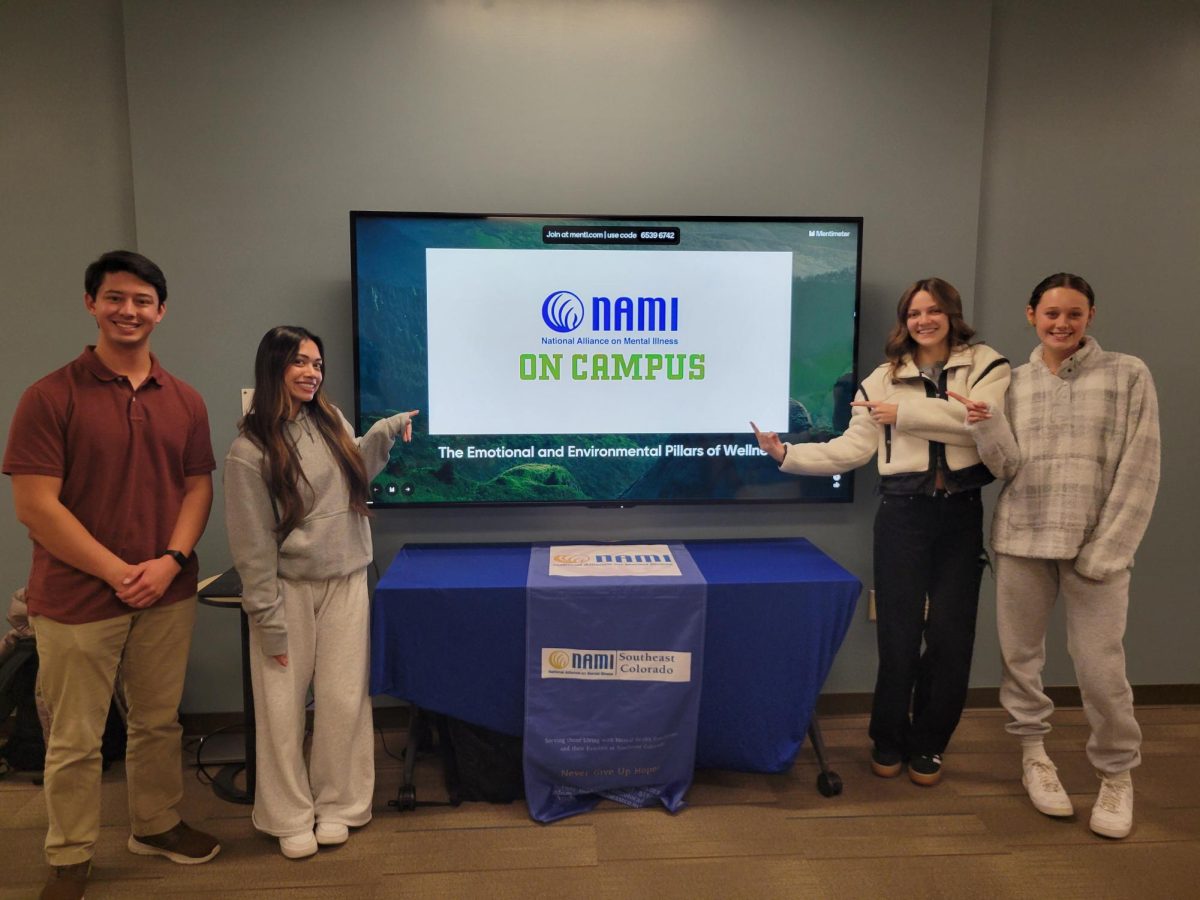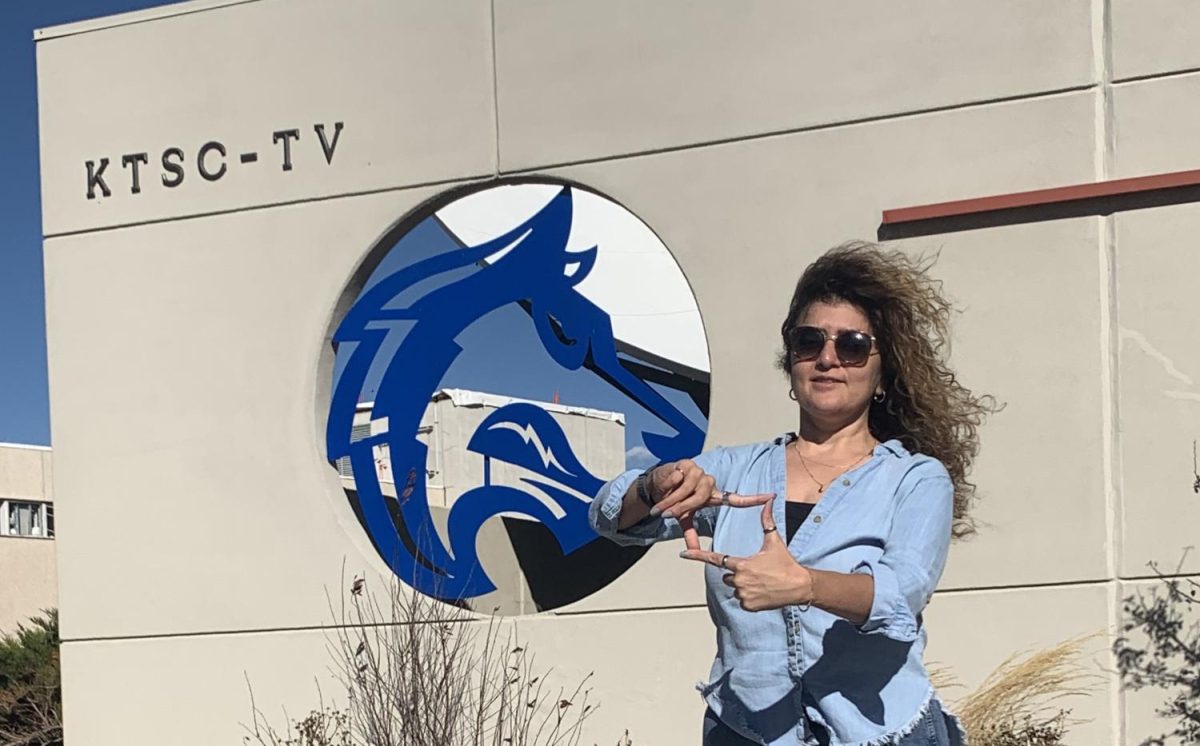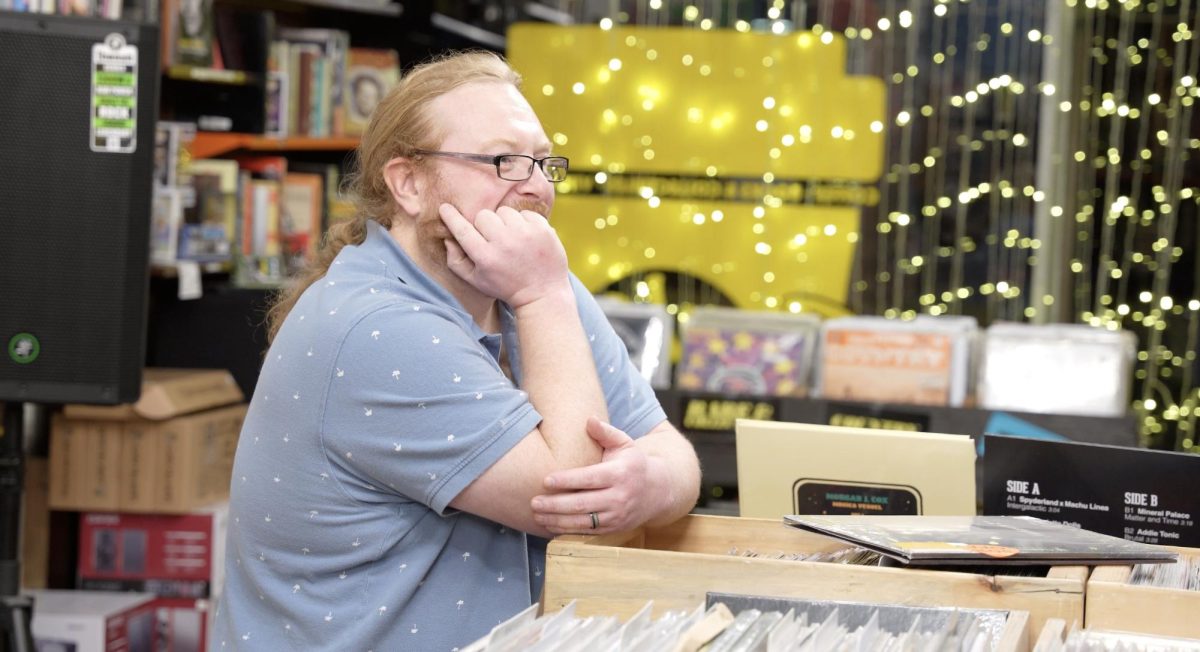The nursing department at CSU-Pueblo is kicking off the spring semester by becoming the lone pilot site in the United States for a new simulation program known as MASK-ED (KRS simulation).

Instructors not only wear the masks during simulation activities, but also give the characters they play unique personalities, stories and medical histories that compliment various nursing lessons.
Kerry Reid-Searl from CQUniversity in Australia founded MASK-ED and will visit CSU-Pueblo Jan. 25 and 26, said JoAnn Crownover, assistant professor and simulation coordinator for CSU-Pueblo. Reid-Searl will attend morning classes while wearing the masks to demonstrate the technique. She will also provide training for the nursing faculty about properly caring for the equipment.
“Simulation in general has really taken off in the last five to 10 years,” Crownover said. “The whole point is to provide students an opportunity for realistic learning in a safe environment. The more real, the more beneficial.”
Funding for this project was derived from a grant the nursing department secured through the Health Resources and Services Administration, Crownover said. Instructors will begin utilizing the equipment purchased from MASK-ED during the spring 2012 semester once faculty trainings are complete.
“I am very excited about MASK-ED coming to CSU-Pueblo,” Crownover said. “I was impressed with the technique when I saw Dr. Kerry Reid-Searl use it and I think it is a great opportunity for our nursing department.”
Kelsey Meminger, a sophomore in the nursing program at CSU-Pueblo, agrees that simulation is extremely important to the learning experience of students, she said
“Doing is far better than just talking about it,” Meminger said. “In theory something may be easy, but doing it is far scarier, and you don’t want to be doing something for the first time in a hospital on someone who is really sick.”
Although CSU-Pueblo already utilizes a simulation lab for interactive learning, the MASK-ED program will give the students a more realistic experience, Crownover said. This is especially true for graduate students who have already worked with real patients to a certain extent.
“With the current equipment, students still have to make the leap between mannequin and human,” Crownover said. “With MASK-ED, the lab patient is a human.”
MASK-ED will also be beneficial because more students will be included during simulation exercises, Crownover said. With the current simulation mannequins, classroom sessions are most effective with approximately 10 students. The mobility of live instructors as lab patients will increase this number significantly, she said.
Since Crownover first sought to bring MASK-ED to CSU-Pueblo after seeing it at a National League for Nursing Simulation Leadership Program conference, she will be the primary instructor using the equipment. She will be the voice and personality behind the masks of a female and male character that CSU-Pueblo already purchased from MASK-ED.
For more information about the MASK-ED technology at CSU-Pueblo, contact Crownover at 719-549-2406, or by email at [email protected].








Mannequins • Feb 6, 2012 at 2:29 pm
I think the idea of ‘simulation’ mannequins is extremely innovative and it’s cool to see this idea extending to a teaching environment. I think most schools would benefit from seeing their students engage in more realistic learning….that is as long as the costs aren’t exorbitant.